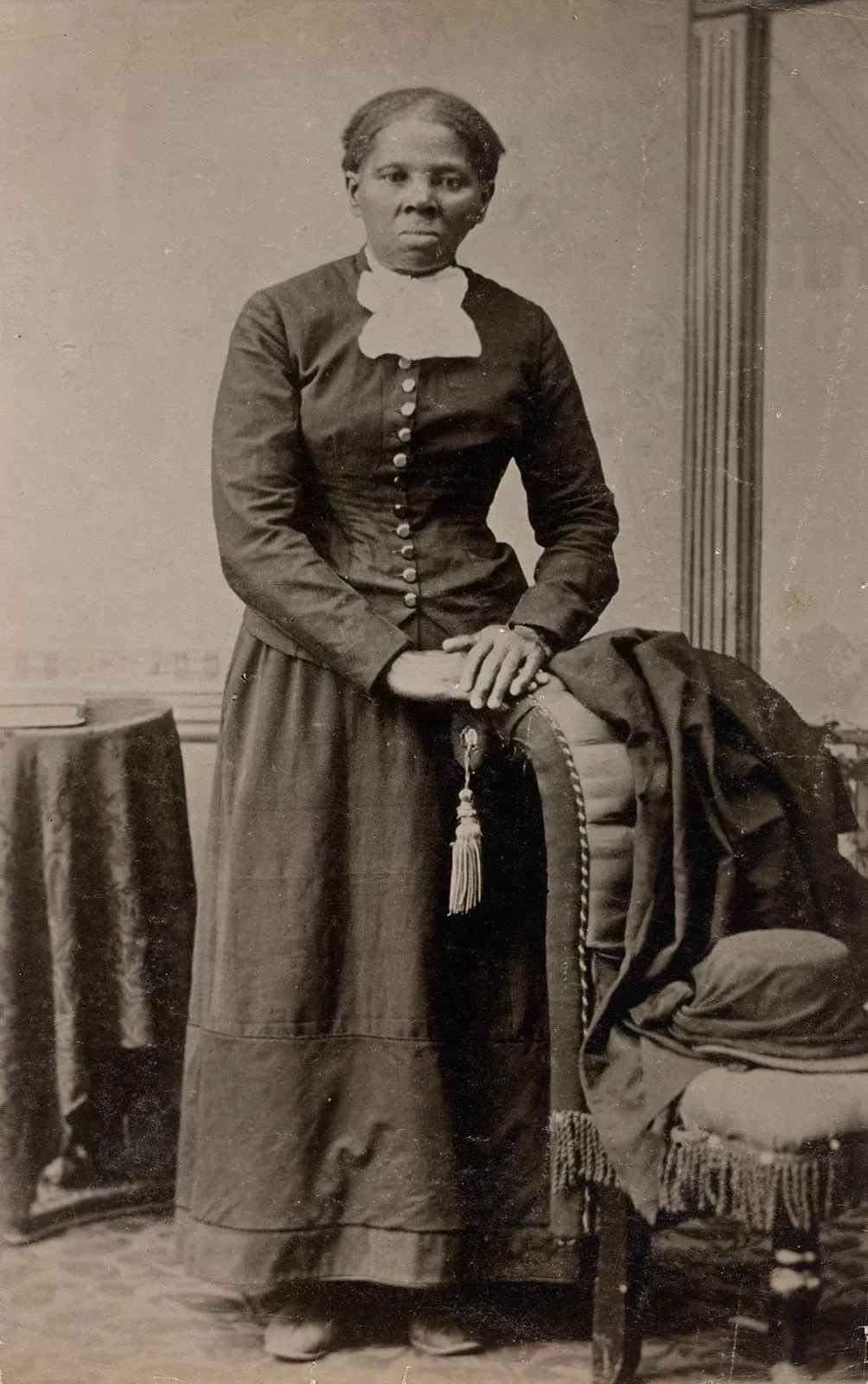Harriet Tubman posthumously honored as one-star general at Maryland ceremony
Harriet Tubman was born into chattel slavery in 1820 as Araminta "Minty" Ross. She grew up on a plantation in Dorchester County, Maryland, as one of 11 children. Her early life was marked by severe hardship and brutal treatment.
At just five years old, Tubman was forced to work for a neighboring family. A tragic incident occurred when she was 12 years old. While trying to help a fleeing slave, she was struck in the head with a heavy metal weight. This injury caused lifelong health issues, including unexpected sleeping spells and episodes of unconsciousness.
Around 1850, Tubman learned that she and her brothers were to be sold. They attempted to escape together, but her brothers turned back out of fear. Tubman continued alone, making the dangerous journey to Philadelphia. This marked the beginning of her remarkable journey as a freedom fighter.
Following her escape, Tubman became involved with the Underground Railroad. She first helped her sister Mary Ann and family escape to freedom. By 1857, she had returned to Maryland to rescue her parents. Her courage and determination earned her the nickname "Moses" among the enslaved people she helped free.
Tubman's Role and Service During the Civil War
When the Civil War erupted, Tubman's expertise in covert operations made her invaluable to the Union Army. Governor John A. Andrews of Massachusetts personally recruited her. She became the first African American woman to serve in combat for the US military.
Tubman's military service was multi-faceted and crucial. She worked as a liaison between Union commanders and escaping slaves. Her role helped recruit many former slaves into the Union Army. She also served as both a nurse and a spy.

Her most significant military achievement was leading a group of spies. Under her command, they conducted operations that led to the liberation of over 700 slaves. Her tactical knowledge of the terrain and ability to move undetected made her operations highly successful.
Despite her invaluable service, the US government initially denied Tubman military benefits. It wasn't until more than two decades later that she received a widow's pension. This came through her second husband's military service rather than her own contributions.
Commemoration Ceremony and Honors
In a historic ceremony at the Harriet Tubman Underground Railroad State Park Visitor Center, the Maryland National Guard posthumously commissioned Tubman as a one-star general. Governor Wes Moore emphasized her significance, stating, "This is a person who was one of the greatest Marylanders we've ever known, and someone who was willing to risk her own freedom, her own safety, her own life in order to save others. That is patriotism. That is heroism."
Maj. Gen. Janeen L. Birckhead, commanding officer of the Maryland National Guard, hosted the ceremony. She proudly declared, "On behalf of the Maryland National Guard, I am proud to call Brig. Gen. Harriet Tubman among the best of us."
The commissioning received unanimous support from both chambers of the Maryland General Assembly. During the ceremony, Birckhead placed the symbolic rank around the neck of Tina Wyatt, Tubman's three-time great grandniece. Wyatt accepted the honor, noting her ancestor's dedication to freeing others and fighting for the Union.
The Impact of Tubman's Legacy on Future Generations

Tubman's influence extends far beyond her lifetime. Her work on the Underground Railroad helped establish a blueprint for civil rights activism. She conducted at least 19 rescue missions into slave territory, becoming a living legend among both the enslaved and their owners.
Her military service opened doors for future generations of African American women in the armed forces. Her roles as a nurse, spy, and commander demonstrated women's capabilities in combat situations. This helped challenge prevailing gender restrictions in military service.
The recognition of her military service in 2023 represents a significant step in acknowledging African American contributions to American military history. It serves as inspiration for current and future service members, particularly women and minorities.
Efforts to Feature Harriet Tubman on US Currency
In 2016, Treasury Secretary Jacob J. Lew announced plans to feature Tubman on the front of the $20 bill. This would make her the first African American to appear on US paper currency. The initiative symbolizes a broader recognition of diverse contributions to American history.
The project faced delays during the Trump administration. However, in 2021, the Biden administration expressed commitment to accelerating the process. They stated they were "exploring ways to speed up" the release of the new bills.
The placement of Tubman on the $20 bill would represent a significant shift in how America commemorates its historical figures. It would acknowledge the contributions of both women and African Americans in shaping the nation's history. The decision continues to generate discussion about representation on national symbols.



